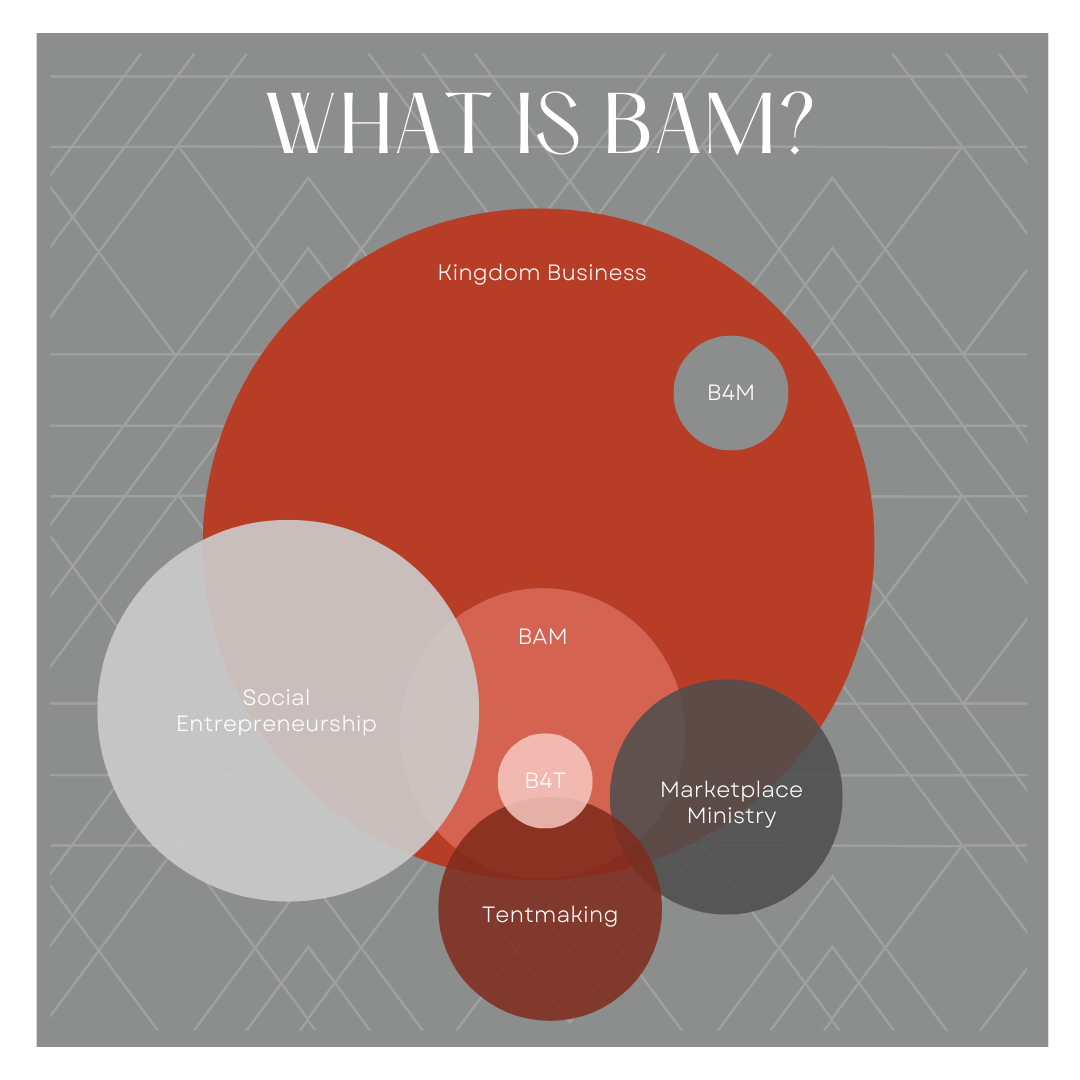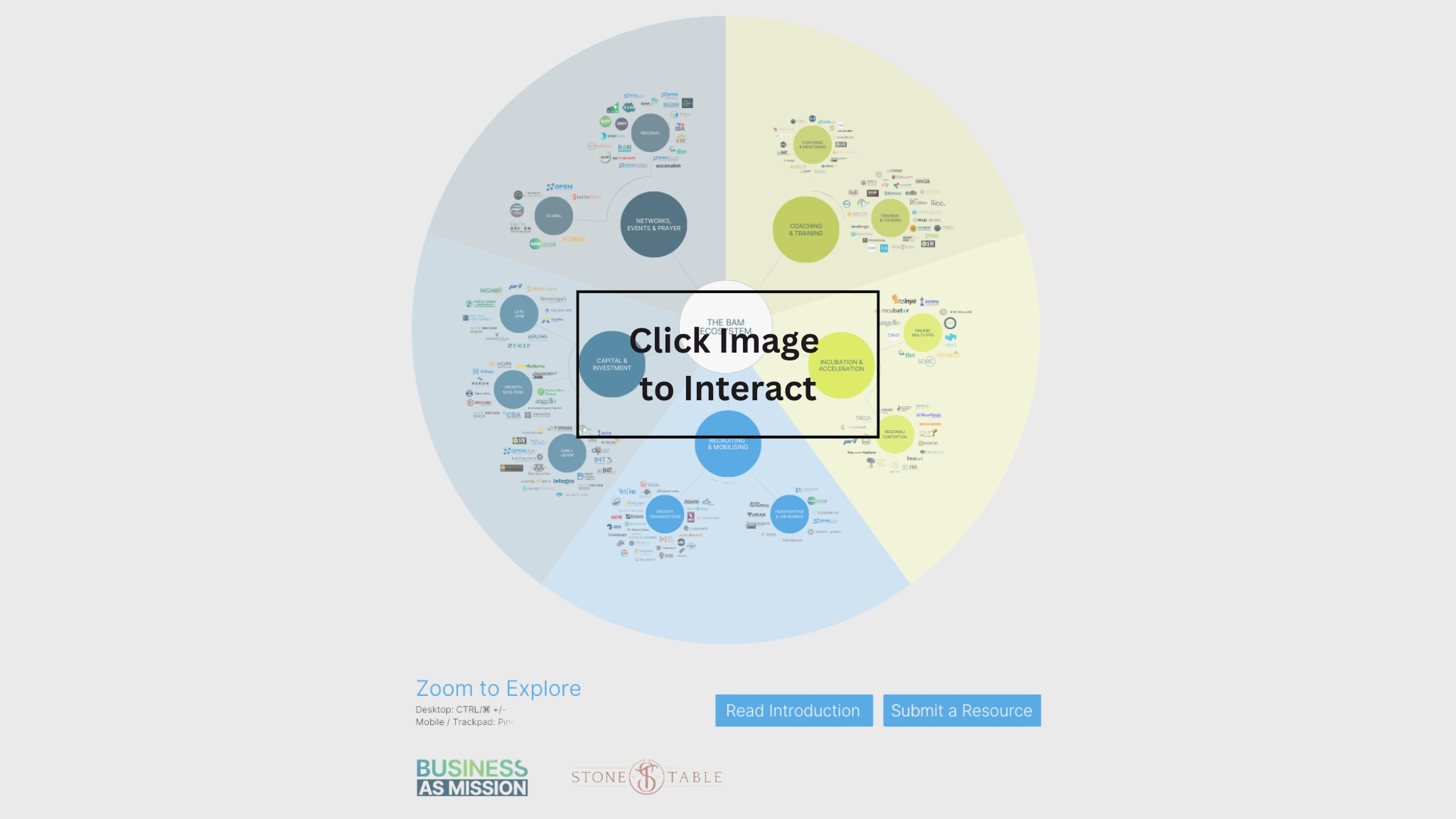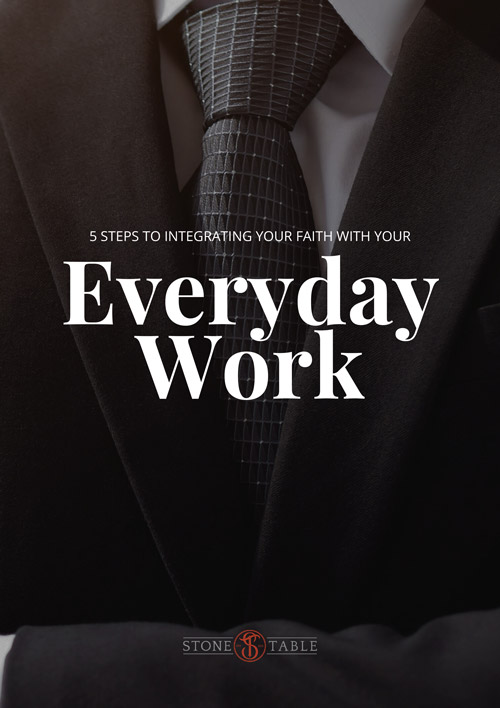Business As Mission
LEVERAGING BUSINESS FOR GLOBAL MISSIONS
Business as mission (BAM) is the intentional integration of business and ministry to create a sustainable, missional presence of the kingdom of God in a particular community.
BAM Global is a nonprofit dedicated to accelerating the business as mission movement globally.

Defining Terms
If you ask 20 people to define BAM you’ll likely get 20 different answers.
Under the broader banner of leveraging business for Kingdom engagement, we see multiple different streams that are often used interchangeably under the umbrella term of BAM. Even though many of them overlap, there are definitive differences in their goals and objectives.
For the purposes of this discussion, our references include Lausanne, AGWM, BAM Global, and Patrick Lai’s books on Business for Transformation and Tentmaking.
Kingdom Business: Any Christian-owned business with gospel redemptive intent.
Marketplace Ministry: Program or initiative aimed at empowering Christians to take the gospel into their workplace.
Social Entrepreneurship: Utilizing the marketplace for the primary aim of addressing a social issue, such as poverty alleviation, clean water, healthcare, or the environment.
Tentmaking: Self-funded missions work by means of starting a business, freelancing, or taking a job.
Business as Mission (BAM): The intentional integration of business and ministry to create a sustainable, missional presence of the kingdom of God in a particular community.
Business for Mission (B4M): Profitable business that is intent on funding missions work. B4M is executed by means of investing in, donating to, or financing missions efforts.
Business For Transformation (B4T): Profit-pursuing business developed for the purpose of planting the church among unreached people groups.
Our Focus
Here at The Stone Table, our global missions efforts are primarily focused on places where the gospel has yet to be preached. So when we say BAM, we are typically also referring to B4T, a focus on utilizing business as a proclamation and church-planting initiative among unreached people groups.
Our partner business, CRF Affordable Housing, functions as a business for mission company within the scope of this terminology. When we give to global missions, the funds generated from CRF are donated to The Stone Table where they are then distributed to strategic missions projects around the world.

BAM INTRODUCTION
Business as mission is not new. It’s actually the recovery of something very, very old! It dates back to the early days of Christianity and was reaffirmed during the Protestant Reformation by Martin Luther as the “Priesthood of All Believers.”
BAM is about “The Whole Church taking the Whole Gospel to the Whole World.“
Today 80% of the unreached world is closed to missionaries. But the world is open for business!
Business as mission is the intentional integration of business and ministry to create a sustainable, missional presence of the kingdom of God in a particular community.
A lot of people think BAM is some new trendy global missions strategy with little staying power. Because of our heretical adoption of the sacred/secular divide and general lack of a biblical theology of work, we have lost something powerful that was actually ingrained into the church since the very beginning.
The historic church never saw the marketplace as a secular subdivision of the Christian life. In fact, much of the gospel’s early spread came through merchants traveling from city to city, country to country, engaging in trade, doing business, and taking the good news of Jesus with them as they went!
And look at the different places Paul and Silas proclaimed the gospel:
“Now while Paul was waiting for them at Athens, his spirit was provoked within him as he saw that the city was full of idols. So he reasoned in the synagogue with the Jews and the devout persons, and in the marketplace every day with those who happened to be there.”
–Act 17:16-17
Business as mission is not new, it’s actually the recovery of something very, very old! It dates back to the early days of Christianity and was reaffirmed during the Protestant Reformation by Martin Luther as the “Priesthood of All Believers.” If we want to see the Great Commission fulfilled in our generation, we will reawaken to this long-held truth of the church as well.
We are seeing this all over the world today. Across the globe, all kinds of marketplace work is being embraced as a Great Commission opportunity to take the gospel to the ends of the earth.
- BAM practitioners are starting sustainable farms, manufacturing operations, travel and tourism companies, Crossfit gyms, coffee shops, language schools, and so much more.
- Gig-economy workers like graphic designers and book editors are moving their base of location to strategic outposts as “missionary digital nomads.”
- Take-a-job missionaries are intentionally taking jobs in unreached areas of the world.
- Others are embedding in global corporations and requesting that they move them into these unreached places.
- Business owners are franchising their models to the unreached world for the sake of the gospel.
- Others are replicating working models often called the BAM-In-A-Box model.
- Strategic business acquisitions are changing the landscape of sustainable access.
Creative Access Nations (CANs) are countries that are closed to missionaries. Today there are more than 70 nations that do not grant missionary visas, and most of those are in the 10/40 window, where the majority of unreached people groups (UPGs) are located.
While these countries do not grant missionary visas, they welcome and often encourage economic investment and entrepreneurial development. We call these countries Creative Access Nations because traditional missions approaches will not work there. Burdened with the injustice of the 3.2 billion people who have not heard the gospel, Christ-followers are encouraged to start businesses or even take jobs with a multinational corporations that give them access to these unreached places.
Charlie’s Story
On an island off the coast of Africa, a business English school functions as a marketplace blessing to the local community. The school provides for-profit English language classes and training to locals looking to get higher-paying jobs in the community’s robust tourism industry. But this school is also a hub for a team of missionaries planting the church in this 99.99% Islamic community.
Until recently, the BAM team there knew of no indigenous believers. Traditional missions strategies won’t work on this island. The country doesn’t allow missionary visas. There is no Bible school in need of missionary teachers.
What this island nation does have is tourists. Lots of them – from Africa, the Middle East, Europe, and even the United States. And the common language shared by nearly all these tourists is English. By learning “business English” a local person can find new life-changing employment and economic opportunities in the robust tourism industry.
Learning English from a native English speaker is highly coveted and our missionary friends recognized this marketplace opportunity. They moved into the community to both demonstrate the and proclaim the gospel…through business.
They launched a for-profit English school and are literally planting the church through the business. Like any good business, the school meets a tangible need in the community. But where many missions efforts might embrace a compassion ministry, this business English school tackles a marketplace need. By providing a highly needed skill to the people of the island, they foster trust and relationships that give them a platform for physical presence and ultimately gospel proclamation.
This is the beauty of Business as Missions!
By meeting a legitimate market need and hiring locals to work in the business, the missionaries become a true value-add partner to the local community. The marketplace is a perfect avenue to proclaim the gospel in word and in deed!
After years of sowing, the dry and fallow ground is beginning to bear gospel fruit.
A few months earlier, a guy we’ll call “Charlie” was hired by the school as a translator. Through his consistent interaction with the teachers, Charlie gave his life to Jesus. While Muslims are very open and interested in talking about Jesus, converting to Christianity is an abomination. Because of Charlie’s decision to leave Islam, his wife’s family revoked her marriage to Charlie and took her away. They had given her to Charlie as a Muslim man, but as a Christian they were no longer obligated to honor the union, even though she wanted to remain his wife and was pregnant with their first child.
Charlie’s brothers threatened to kill him. They locked him out of his home and took all his possessions. Because of his new faith in Jesus, Charlie was literally left alone with only the clothes on his back.
Yet even amidst the horrific persecution, he refused to renounce his faith and his allegiance to his Savior. We sat with Charlie for a few hours, listening to him tell his story and his unwavering faith in Christ. We cried with him as he talked about losing his wife and their child.
And then we had the honor of walking with this small group of BAM missionary English teachers down a small dirt path to a little inlet of the Indian Ocean to watch Charlie be baptized as the first known believer of this people group. This was literally the equivalent of seeing a stadium full of people in other parts of the world!
When we use the term Business As Missions, this is not to be confused with “Job Faking,” also called “Business for Visas” or shell companies.
We use the terminology Business as Missions and Tentmaking. These are not to be confused with “Job Fakers,” also called “Business for Visas” or shell companies. This is where a missionary creates a false marketplace presence through a business that doesn’t really exist. The fake business may give a worker visa access to a country, but there is no true attempt to add value to the local community through real business development.
This BAM expression is built on falsehood and deception and is a stain to the gospel message the missionary is there to spread. We do not believe in this approach and think it does great damage to Great Commission efforts around the world. When we say BAM, we are talking about real businesses that are owned by Christians who intentionally share the gospel and make disciples of those around them.
BAM Ecosystem Map
Business as mission is a growing movement around the world. It is not our movement but the move of God through His people.
In partnership with BAM Global and many others we’ve developed this new, interactive tool to demonstrate the breadth of this movement and encourage collaboration, sharpening, and sharing of resources.
Check out investment funds, coaching and training organizations, incubators, recruiting companies, networks, and more!


